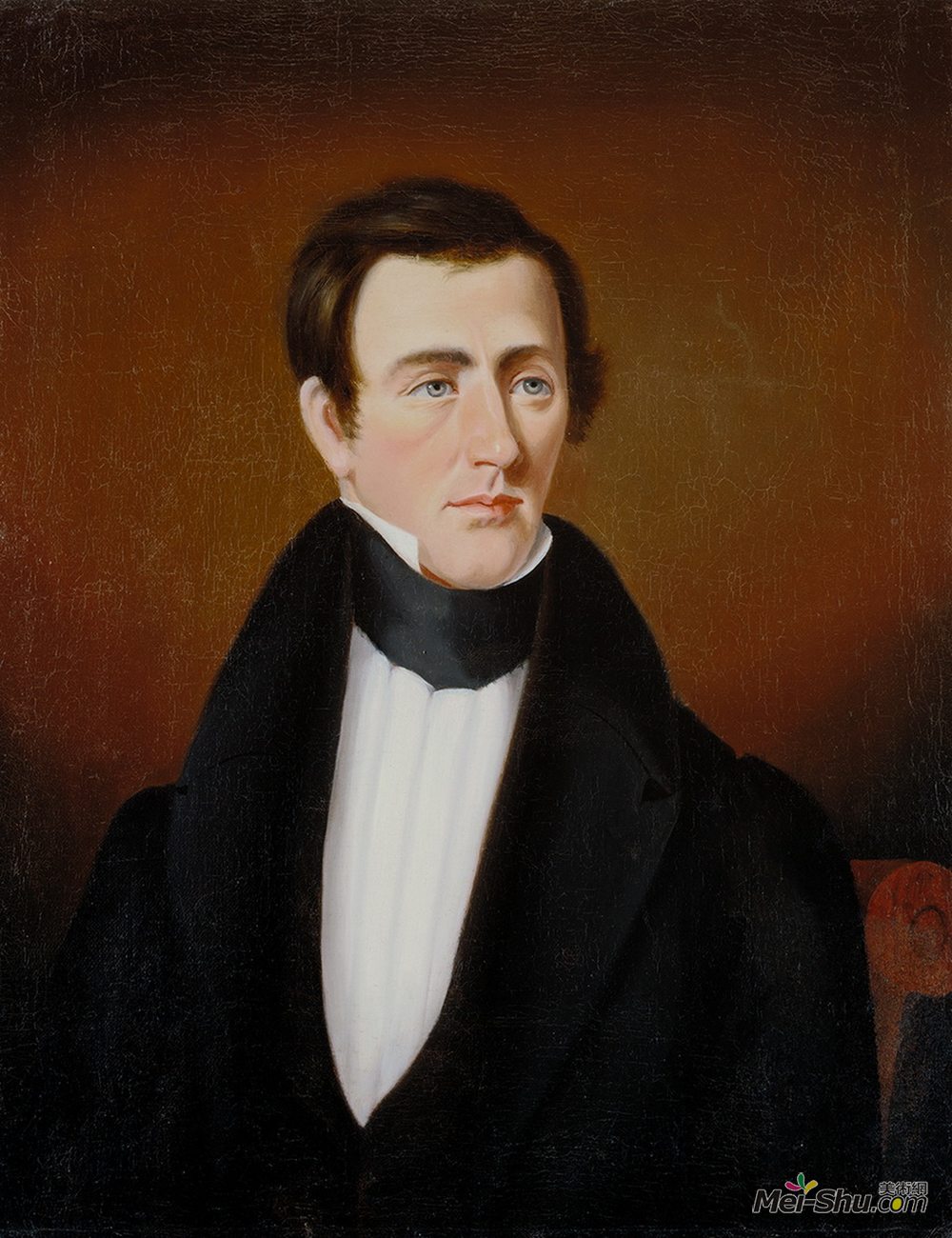 费奥多尔·索伦采夫(Paul Kane)高清作品《弗里曼-施默尔霍恩钳》
费奥多尔·索伦采夫(Paul Kane)高清作品《弗里曼-施默尔霍恩钳》
作品名:弗里曼-施默尔霍恩钳
艺术家:费奥多尔·索伦采夫
年代:1836
风格:浪漫主义
类型:肖像
保罗·凯恩把这幅弗里曼·克伦斯的肖像画成两幅中的一幅,挂在弗里曼的妻子伊丽莎·克伦斯的肖像上。这些吊坠肖像代表了凯恩作为艺术家谋生的最初计划。这些照片可以追溯到他在安大略省科堡的两年期间,当时他利用社会关系发展自己的肖像画技巧。他本可以通过为克伦斯家具公司工作或者通过与威尔逊·S·康格(Wilson S..er)的联系了解克伦斯夫妇的,康格是凯恩在多伦多的前雇主,1829年移居科堡,并通过在市政府的职位成为杰出公民。把克伦奇夫妇描绘成穿着时髦,而伊丽莎的金色小盒和耳环则特别表明了家庭的地位。从这一时期凯恩的社会肖像反映了一个天真的,线性风格的专业能力。虽然个别的坐席感觉是明显的,细长的脖子,增强的时尚的时期,头发和服装的图案化模仿了典型的肖像画风格。凯恩整个职业生涯中都会继续使用一种聚焦装置,这种装置背后有着宽广的光晕效应。虽然克伦斯的肖像画都没有签名(凯恩的典型代表),但根据颜料与他画室油漆盒的内容的比较,2,以及他与克伦斯家族的密切关系,他们都归因于凯恩。这两幅肖像都是通过家族流传下来的,直到1990年由加拿大国家美术馆获得。
Title:Freeman Schermerhorn Clench
artist:Paul Kane
Date:1836
Style:Romanticism
Genre:portrait
Paul Kane painted this portrait of Freeman Clench as one of a pair, to be hung with the portrait of Freeman’s wife, Eliza Clench. These pendant portraits represent Kane’s initial plan for earning his living as an artist. They date from his two-year period in Cobourg, Ontario, when he took advantage of social connections to develop his skills in portraiture. He would have known the Clenches either through working for the Clench furniture business or through his contact with Wilson S. Conger, Kane’s former employer in Toronto who moved to Cobourg in 1829 and became a prominent citizen through his positions in municipal office.1 The paintings portray the Clenches as fashionably dressed, and Eliza’s gold locket and earrings are especially indicative of the family’s status. Kane’s society portraits from this period reflect a professional competence within a naive, linear style. While some sense of the individual sitters is discernible, the elongated necks, enhanced by the fashion of the period, and the patterning of hair and costume mimic a stylization typical of portraiture at the time. The plain background with a broad halo effect behind the head is a focusing device Kane would continue to use throughout his career. Although neither Clench portrait is signed (typical of Kane), they have been attributed to Kane based on the comparison of the pigments with the contents of his studio paint box,2 as well as on his close relationship with the Clench family. Both portraits were handed down through the family until their acquisition by the National Gallery of Canada in 1990.
作品名称:《弗里曼-施默尔霍恩钳》费奥多尔·索伦采夫(Paul Kane)高清作品欣赏
作品链接:https://www.mei-shu.com/famous/27002/artistic-100624.html
作品类别:油画
免责声明:本站部分公开资料来源于互联网,目的是用于学术交流与讨论,并不代表本网赞同其观点和对其真实性负责。如果您认为我们的侵犯了您的权益,请与我们联系(banquan#mei-shu.com #替换为@),我们将在第一时间删除相关内容。